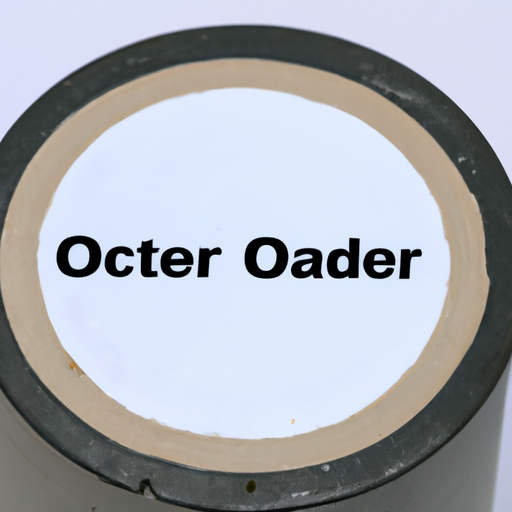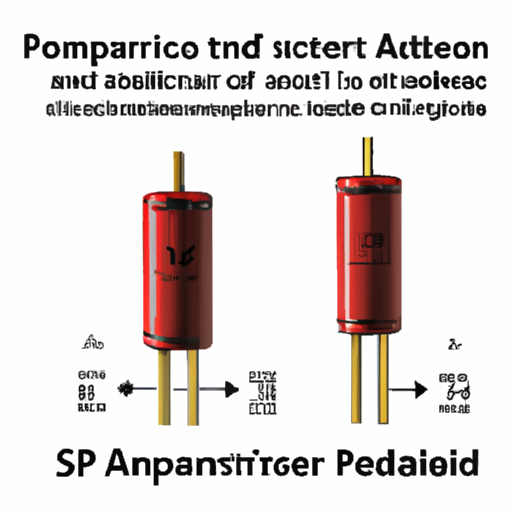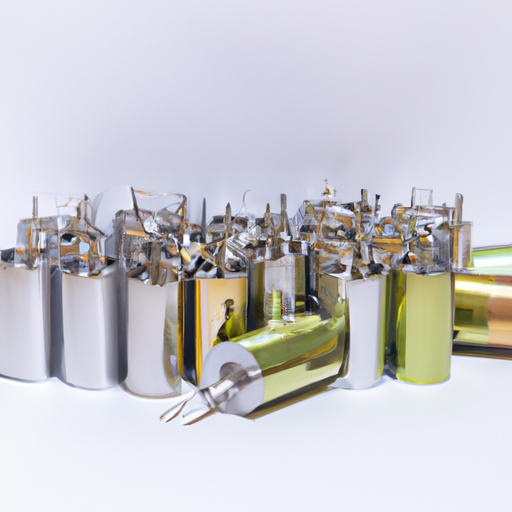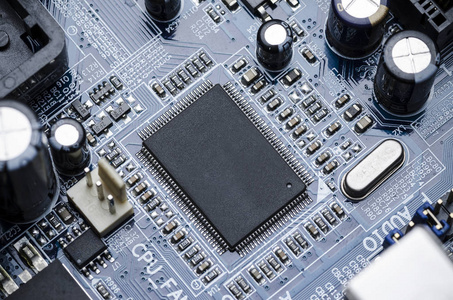What kind of product is an overload capacitor?
What Kind of Product is an Overload Capacitor?
I. Introduction
In the realm of electrical engineering, capacitors play a pivotal role in the functionality and efficiency of various systems. Among the different types of capacitors, overload capacitors stand out due to their specific purpose and application. An overload capacitor is designed to protect electrical equipment from damage caused by excessive current or voltage. This article aims to delve into the intricacies of overload capacitors, exploring their definition, functionality, types, and importance in modern electrical systems.
II. Understanding Capacitors
A. Basic Principles of Capacitors
1. **Definition and Function**: A capacitor is an electronic component that stores and releases electrical energy. It consists of two conductive plates separated by an insulating material known as a dielectric. When voltage is applied across the plates, an electric field is created, allowing the capacitor to store energy.
2. **Types of Capacitors**: Capacitors come in various types, including ceramic, electrolytic, tantalum, and film capacitors. Each type has unique characteristics and applications, making them suitable for different electrical circuits.
B. Role of Capacitors in Electrical Circuits
1. **Energy Storage**: Capacitors store energy in the form of an electric field, which can be released when needed. This property is crucial in applications such as power supply smoothing and energy buffering.
2. **Voltage Regulation**: Capacitors help maintain a stable voltage level in circuits by absorbing voltage spikes and releasing energy during dips, ensuring consistent performance.
3. **Signal Filtering**: In communication systems, capacitors filter out unwanted frequencies, allowing only the desired signals to pass through. This function is essential for maintaining signal integrity.
III. What is an Overload Capacitor?
A. Definition and Characteristics
An overload capacitor is a specialized type of capacitor designed to handle electrical overloads. These capacitors are built to withstand higher voltage and current levels than standard capacitors, making them essential for protecting sensitive electrical equipment.
B. How Overload Capacitors Differ from Standard Capacitors
While standard capacitors are used for general purposes, overload capacitors are specifically engineered to prevent damage from electrical surges. They often feature enhanced insulation and construction materials to withstand extreme conditions, ensuring reliability and longevity.
C. Common Applications of Overload Capacitors
Overload capacitors are commonly used in various applications, including:
Electric motors: To provide additional starting torque and protect against overload conditions.
Power supplies: To stabilize voltage and prevent damage from surges.
Industrial equipment: To ensure the safe operation of machinery and prevent costly downtime.
IV. The Functionality of Overload Capacitors
A. Protection Against Electrical Overloads
1. **Mechanism of Action**: Overload capacitors function by absorbing excess energy during overload conditions. When the current exceeds a certain threshold, the capacitor discharges its stored energy, preventing damage to the connected equipment.
2. **Importance in Preventing Equipment Damage**: By acting as a buffer against electrical surges, overload capacitors protect sensitive components from overheating and failure, extending the lifespan of the equipment.
B. Role in Power Factor Correction
Overload capacitors also play a crucial role in power factor correction. By improving the power factor of an electrical system, they enhance energy efficiency and reduce energy costs. This is particularly important in industrial settings where large motors and equipment are used.
C. Contribution to System Stability and Efficiency
By stabilizing voltage levels and reducing the risk of overloads, overload capacitors contribute to the overall efficiency of electrical systems. This stability is vital for maintaining optimal performance and preventing unexpected shutdowns.
V. Types of Overload Capacitors
A. Motor Start Capacitors
1. **Function and Applications**: Motor start capacitors provide the necessary boost of energy to start electric motors. They are typically used in single-phase motors, such as those found in air conditioning units and refrigerators.
2. **Characteristics and Specifications**: These capacitors are designed to handle high voltage and current levels for short durations, ensuring a quick start for the motor.
B. Run Capacitors
1. **Function and Applications**: Run capacitors are used in motors to improve efficiency during operation. They help maintain a consistent voltage level, reducing energy consumption and enhancing performance.
2. **Characteristics and Specifications**: Unlike start capacitors, run capacitors are designed for continuous operation and are rated for longer durations.
C. Other Specialized Overload Capacitors
In addition to motor start and run capacitors, there are other specialized overload capacitors designed for specific applications, such as power factor correction capacitors and surge protection capacitors. Each type serves a unique purpose in enhancing the reliability and efficiency of electrical systems.
VI. Selecting the Right Overload Capacitor
A. Factors to Consider
1. **Voltage Rating**: It is crucial to select an overload capacitor with a voltage rating that matches or exceeds the operating voltage of the system. This ensures safe and reliable operation.
2. **Capacitance Value**: The capacitance value determines the amount of energy the capacitor can store. Selecting the appropriate capacitance is essential for optimal performance.
3. **Temperature Rating**: Overload capacitors must be able to operate within the temperature range of the application. High temperatures can degrade capacitor performance and lifespan.
B. Importance of Matching Capacitors to Specific Applications
Choosing the right overload capacitor for a specific application is vital for ensuring reliability and efficiency. Mismatched capacitors can lead to equipment failure, increased energy costs, and safety hazards.
C. Common Mistakes to Avoid When Selecting Overload Capacitors
Some common mistakes include:
Ignoring voltage ratings: Using a capacitor with a lower voltage rating than required can lead to catastrophic failure.
Overlooking capacitance values: Selecting a capacitor with an incorrect capacitance value can result in poor performance or damage to the system.
Neglecting temperature ratings: Failing to consider the operating temperature can shorten the lifespan of the capacitor.
VII. Installation and Maintenance
A. Proper Installation Techniques
Proper installation of overload capacitors is essential for optimal performance. This includes ensuring correct polarity, secure connections, and appropriate mounting to prevent vibration damage.
B. Safety Precautions
When working with overload capacitors, safety precautions are paramount. Always discharge capacitors before handling, use appropriate personal protective equipment, and follow manufacturer guidelines.
C. Maintenance Tips for Longevity and Performance
Regular maintenance can extend the lifespan of overload capacitors. This includes:
Periodic inspections: Check for signs of wear, damage, or leakage.
Cleaning: Keep capacitors free from dust and debris to prevent overheating.
Testing: Use appropriate testing equipment to ensure capacitors are functioning correctly.
VIII. Conclusion
Overload capacitors are essential components in modern electrical systems, providing protection against electrical surges and enhancing overall efficiency. Understanding their functionality, types, and proper selection is crucial for anyone involved in electrical engineering or maintenance. As technology continues to evolve, the role of overload capacitors will remain significant, ensuring the reliability and safety of electrical systems.
IX. References
For further reading on overload capacitors and their applications, consider the following resources:
- "Capacitors: Principles and Applications" by John Smith
- "Electrical Engineering: Principles and Applications" by Allan R. Hambley
- Online resources from reputable electrical engineering websites and manufacturers.
By understanding the importance of overload capacitors, we can better appreciate their role in safeguarding our electrical systems and ensuring their efficient operation.






